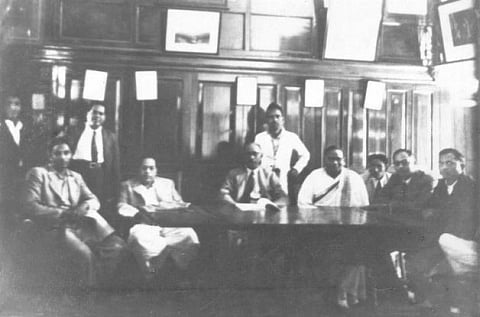Jogendranath Mandal was born on 29 January 1904, in a predominantly Namasudra (an 'untouchable' caste, formerly called 'chandala') village called Maisterkandi of northern Barisal District, in a Bengal on the verge of being partitioned by George Nathaniel Curzon's pen. Though his parents, Ramdayal and Sandhyadebi, doted over him as the youngest of their six children, they often struggled, and at times failed, to provide him with an education at nearby village schools. Over the next few decades, he would rise from these humble origins to become one of the most vocal and articulate leaders from amongst the Scheduled Caste communities of British India.
Despite (or perhaps because of) his trenchant critique of the social relations of caste inequality in Bengal, he is today hardly remembered, much less understood by the people and country into which he was born. In a state that has long proclaimed its exceptionality in terms of the casteism seen elsewhere in India, Mandal's marginality in historical narratives seems eerily and curiously fitting. Recovering and listening to his past, then, is to encounter social forces deemed anachronistic in an allegedly secular, communist state. Mandal's most significant contribution was his struggle for a freedom that embraced the ideals of social equality and democracy – a struggle directed squarely against the ideologies and practices of both casteism and communalism.

